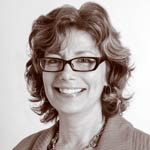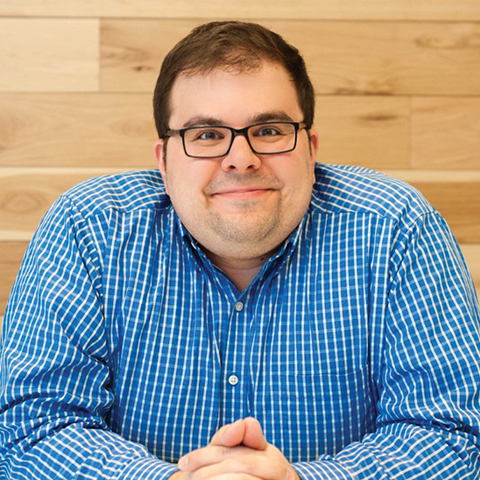 Alysone Will, CMP, is coming up on her 20th year as head of her own company, Toronto-based Absolute Conferences & Events Inc., which offers a full menu of meeting-planning and association-management services. Like many industry professionals, she stumbled into the independent meeting-planning business — but has been on sure footing since establishing Absolute.
Alysone Will, CMP, is coming up on her 20th year as head of her own company, Toronto-based Absolute Conferences & Events Inc., which offers a full menu of meeting-planning and association-management services. Like many industry professionals, she stumbled into the independent meeting-planning business — but has been on sure footing since establishing Absolute.
How did you get your start in meeting planning?
I’m not from this side of the ocean, as you probably can hear. [Editor’s note: Will has a lovely British accent.] When I first arrived in Canada in 1976, I was in the retail business. Then, by chance, I met another lady who is English who had started a company providing [registration services] for mostly consumer shows at the time.
Then she saw that there was a need to develop a company that could provide destination-management [services]. We did tours — Niagara, Toronto, whatever was the need at the time. This was about 1979–1980. She asked me if I would be a tour guide on a piece of business where they didn’t have enough guides. I said I didn’t know enough about Toronto. She said, “Here are the notes. Read up.” That’s how it started. So on a part-time basis, I did that.
They were looking for some administrative help, so I joined the company. Initially I was producing proposals and then, gradually over time — I was there for 15 years — we started the conference-planning side. I was working mostly with the owner on developing conferences. We learned in those days by the seat of our pants.
And then that business closed. It was now, what am I going to do? This is how Absolute came about, at the end of 1995. Before that though, [in 1991,] I had been among the first 500 [professionals] in North America to earn a CMP.
What do you like most about this industry?
I think more than anything, having come from retail, it’s all about the people. You are in constant contact with people in this business. And then obviously, it’s the satisfaction at the end of it — of spending ages on planning and eventually seeing the fulfillment and the success of it, and rolling on to the next one afterwards.
When I first developed Absolute, I worked from home and I was going squirrely. Walls don’t talk to you. I went on my own with Jacqui Sullivan — she and I have worked together since 1993 almost consistently, with a couple of years’ break in the middle. Absolute has grown from there. We’ve never been very big — never more than about six people. Didn’t want to be any bigger. Didn’t want that responsibility of all the overhead and so on.
What kind of organizations are your clients?
I’m a bit more selective on what we go for. Most of our business now is in the not-for-profit association market. We’ve developed that market, and now we’re a little bit into the association-management side, too. All of our clients are either Canadian associations or they happen to be Ontario associations.
What do you like best about being an independent planner?
The variety. I could not work on an annual basis knowing that this time of the year I have to do this, this time of the year I have to do that, and it’s repetitive year after year. We have a lot of long-term clients, so I suppose you could say that we do have repetition. But each year, that conference is different. People are different. We’re moving on from one to another one.
What kind of “soft” skills do you think independent planners need to focus on?
I think one of the big things for independents is the fact that we absolutely do have to listen. Everybody is very prepared to jump in and give their opinions. But as consultants, you shouldn’t be giving your opinion until you’ve heard what it is that’s being looked for.
I sit around the table and I hear people butting in on conversations at the wrong time. I think, they’re not getting the answer because they haven’t waited for the answer. I think that’s very critical that you do listen before you tend to speak. Especially now with the huge changes in the meeting industry over the years with technology and how people are learning and how people like myself who, I hate to tell you, are in the slightly older generation, learn very differently from those in their twenties.
I think that it’s very important that we ask questions to think outside of the box to help our clients regenerate and move on in any of their business aspects. We have long-term clients, so we’re particularly looking at what can we do that will improve, benefit, and change our clients’ conference.
Any particular challenges that you see for independent planners?
One of the things here in our part of the world is that there are now lots of us, or people like us. When the corporate world decides that the meeting-planning department is a cost center and they get rid of it, all the meeting planners go off and become meeting planners on their own.
But if you’re an established meeting planner, which we are, you should be able to ride the wave. I think a lot of it has to do with the way you approach your business, how you service people, and generally, it’s not all about money. The money does play a big part in it when you’re doing a proposal, but cheapest isn’t always the best. I run an office. I have overhead. I have staff. An independent planner on their own is in their own home without those overheads. So that’s part of the challenge. But we have support staff, so when we have a project, we work as a team. What if something happens? We always say, what if you get run over by a bus?
And, working in the association industry, of course, they’re very budget-conscious. That’s another issue that you’re faced with when you’re doing proposals. But again, it’s what you’ve built up over the years and how people know you and your reputation and things like that that you need to get out there.



